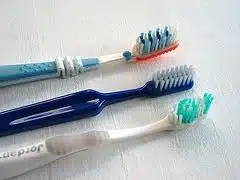
Unveiling the Role of Biofilms in Oral Health: A Dentist’s Perspective
As a dentist, one of the most intriguing subjects in the realm of oral health is biofilm. You may not have heard much about it, but biofilm plays a significant role in the health of your mouth. Let’s delve deeper into what biofilm is and how it impacts oral health.
What is Biofilm?
Biofilm is a complex community of microorganisms that adhere to surfaces and form a protective matrix. In the context of oral health, biofilm is commonly referred to as dental plaque. It’s a sticky, colorless film that forms on teeth, containing a mixture of bacteria, fungi, and other microorganisms.
Problematic Biofilm in the Gut
While, in dentistry, we primarily focus on oral biofilm, it’s essential to recognize that gut biofilm can also impact overall health. When the wrong type of microorganisms overgrow or if harmful biofilms develop in the gut, it can lead to various health issues, including irritable bowel syndrome, gut inflammation, and even colorectal cancer.
Connecting Oral and Gut Health
Interestingly, there’s a significant connection between oral and gut health. The same principles that apply to gut biofilm can also affect oral biofilm. When the balance of microorganisms in the mouth is disrupted, it can lead to issues like gum disease, cavities, and bad breath.
Biofilm Disruptors: A Key to Oral Health
In the realm of dentistry, biofilm disruptors play a crucial role in maintaining oral health. These substances work to break down the protective barrier of biofilms and expel them from the body. Key ingredients in quality biofilm disruptors include herbs, chelators, enzymes, garlic, and turmeric.
When Do You Need Biofilm Disruptors?
If you’re experiencing symptoms like bloating, gas, irregularity, occasional fatigue, or bodily discomfort, it may indicate suboptimal oral and gut health. In such cases, incorporating biofilm disruptors into your health care routine can be beneficial.
Consult Your Dentist
Before incorporating any major changes into your oral health routine, it’s essential to consult your dentist. They can assess your oral health status, identify any issues, and recommend the best course of action to optimize your oral microbiome.
Taking Action
Biofilm is a fascinating subject that affects both oral and overall health. By understanding its role and incorporating biofilm disruptors into your oral care routine, you can support a healthy oral microbiome and promote overall well-being. Remember, a healthy smile starts with a healthy mouth!
If you’re interested in learning more about gut biofilm disruptors you can learn more about them here:
It’s time you achieve a smile that’s not only beautiful — but also healthy from the inside out!





